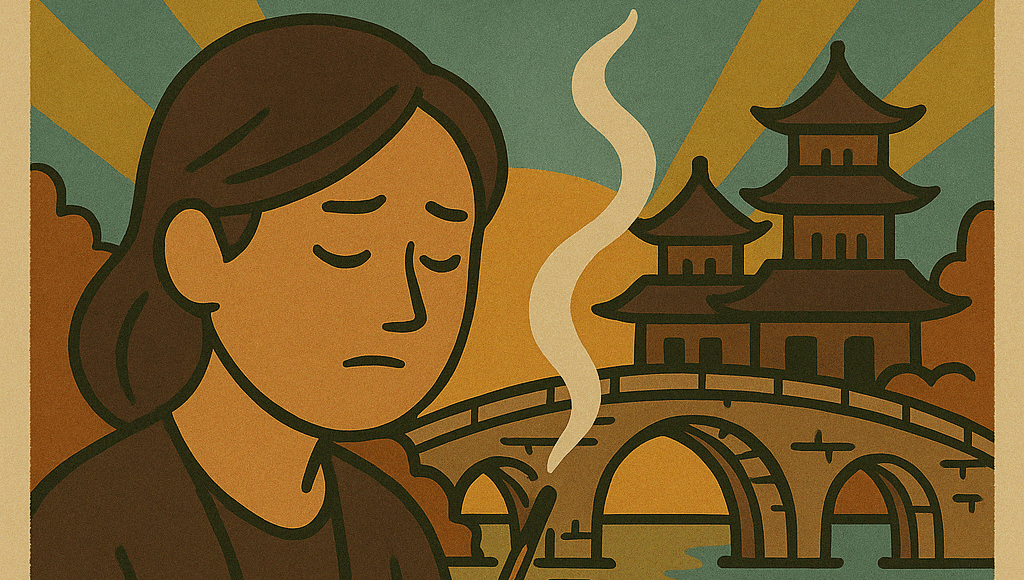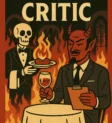Author’s Notes: Bridge at Crowsleep Market

I didn’t set out to write a ghost story. Not really.
Bridge at Crowsleep Market began with a festival—the Qingming Festival, or Tomb-Sweeping Day—and the sense of reverence and familial grief that clings to it like incense smoke. My family had just observed it the week before, and I was struck by how easily modern trivialities sneak into ancient traditions.
As I researched more deeply, what lingered with me wasn’t the ceremony itself, but the quiet afterward—the stillness that follows the burning of paper, the hush of reflection. That’s where this story lives. For us, it was a mostly silent car ride home, each of us turned inward, tracing the ways our ancestors’ lives continue to shape our own. That silence was heavy with unspoken thoughts: about duty, about expectation, about the weight of lineage.
There’s a kind of pressure, subtle and constant, that comes from Confucian values—filial piety, obligation, the quiet endurance expected of us. You don’t always notice it until you stop moving. Until you sit with the silence long enough to realize how much you’re carrying.
The title came first—Crowsleep—a name that felt soft and foreboding at once. The idea of a bridge felt inevitable. In mythology and dream logic, bridges are always places of passage: between life and death, memory and forgetting, silence and speech. The market around it grew naturally—a space bustling with distractions, with offerings, with noise. A place where grief tries to disguise itself as tradition.
The protagonist, though unnamed, was always someone on the edge—young but worn, dutiful but hollowed. I knew she had lost someone, but I didn’t know how. I let that uncertainty remain. In many ways, this story is about the kind of grief that doesn’t declare itself, the kind that lives in the body long after the funeral, the kind that smells like boiled rice and wet stone and jasmine too long in the vase.
The fantastical element here is quiet. No monsters, no magic system. But the world slips sideways just enough to suggest that maybe—just maybe—there are places where the veil wears thin. Maybe if you say the right thing at the right moment, or walk a certain path in silence, the people you’ve lost can hear you again.
Structurally, this story does very little. There’s no twist. No big reveal. It doesn’t want to surprise you—it wants to settle into you. Like steam on glass. Like a memory misfiled and suddenly recalled.
If it’s about anything, it’s about the strange gentleness of grief. About how we go on remembering, even when remembering hurts. About the bridges we cross to talk to the dead—and the bridges we build inside ourselves just to keep going.


